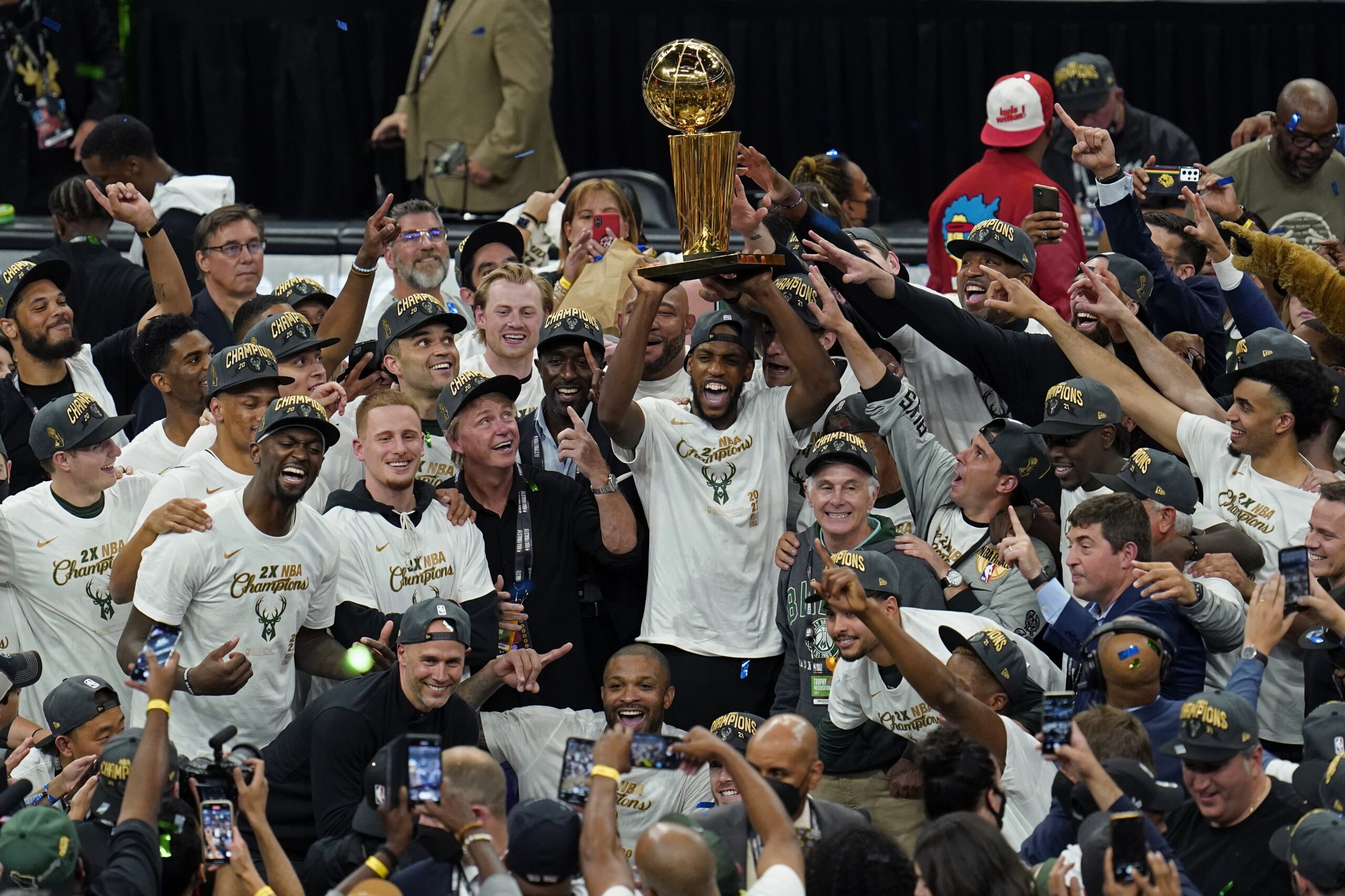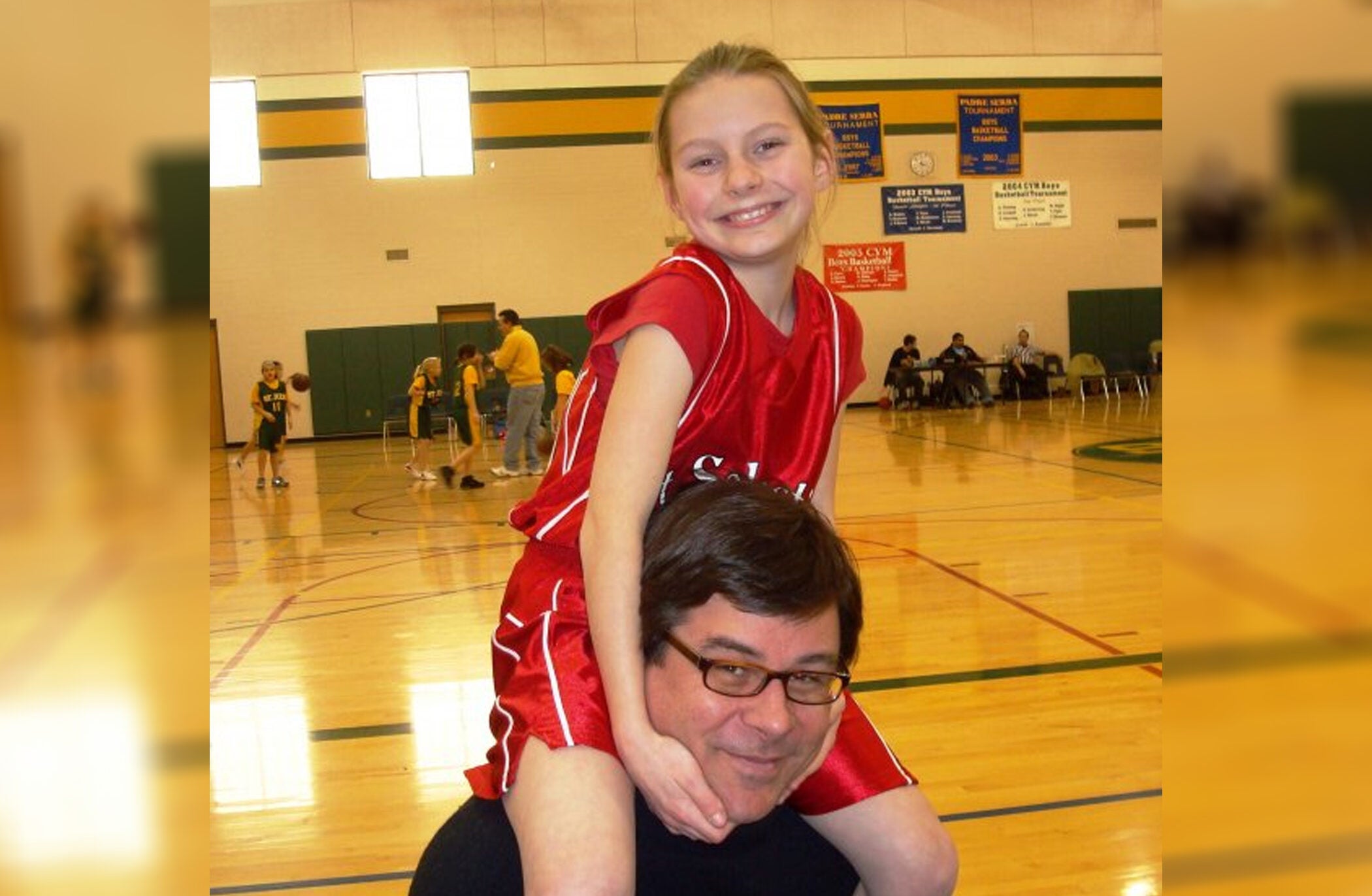Today, comedian Josh Gondelman joins us to talk about his debut stand-up special, ‘People Pleaser.’ Also, Chelsea Bieker on her short-story collection, ‘Heartbroke.’ And Jon Mooallem on his funny, smart and perceptive essay collection, ‘Serious Face.’
Featured in this Show
-
Josh Gondelman's 'People Pleaser' is sure to please everyone who watches it
Editor’s note: This story contains language and links that might not be suitable for all audiences.
Josh Gondelman has a reputation for being the “nicest man in comedy.”
So, it’s very appropriate that his debut one-hour comedy special is called, “People Pleaser.”
But there must have been a few occasions when being a people pleaser has backfired on him, and he’s regretted it. Right?
“Oh, yeah, for sure,” Gondelman told WPR’s “BETA.” “I was just like such a goober when I was a young person. I really wanted to be there for people and do things that are nice.”
Gondelman’s random acts of kindness included carrying around a can of Progresso Chicken Noodle soup during high school. If one of his fellow classmates seemed like they were having a bad day, he would offer up the can.
“And in retrospect, that’s like a completely unreasonable thing to do,” he recalled. “I’m sure people were like, ‘What the hell is this guy doing?’ Because … there’s no place to heat up chicken soup. No can openers. … So, I was really just giving them a one-pound weight to do resistance training with as they walked through their day.”
Gondelman hadn’t performed live in over a year, and that was his biggest challenge when putting together his comedy special, he said.
Just as he was getting ready to start performing live again, Comedy Dynamics asked if he could be ready to record an hour-long special in a month.
“It was going from only doing Zoom shows and the very occasional outdoor show to working up my sea legs to being on stage at all, to figuring out like what it looks like to do an hour with some material that I’ve never performed in person, some material that I had started writing a few years ago after my last album came out.“
Unlike a lot of other comedy specials which record two or more sets, Gondelman got it all on the first take.
“I was like, ‘OK, I’ve got four weeks to ramp up, and then I have this one night where I have to execute this performance, and then I’ve done it.’”
Besides delivering lots of laughs about various subjects, much of his one-hour set is based on his own personal life, which got us wondering how much of his personal life he is willing to share with his audience.
“I feel pretty comfortable sharing a lot of things about my life,” he said.
But he also wants to make sure the people in his life, whom he talks about in his comedy routines, feel he’s being fair to them.
For example, his wife, Maris, might respond to one of his jokes saying he misunderstood or misrepresented her.
“And I go, ‘Oh, well, then I should reconsider too, to treat you more fairly when I represent you on stage. I can write another joke, but my wife is the person I spend every day with and in a pandemic, all day, every day.”
Near the end of “People Pleaser,” Gondelman shares a very beautiful, very poignant and funny story about the moment that he knew he wanted to be with his then-girlfriend forever.
“It was the day of my grandmother’s funeral, and it was an intense day,” he recalled.
He and Maris went into Boston to hang out with some friends. FULL DISCLOSURE: He was doing shows that he’d already booked in Boston, and he had not canceled them.
“And on the way into the city, we heard “Caress Me Down” by Sublime, which I think is kind of a goofy song,” he said. “It is a song that is like too sexually explicit. It’s phenomenal that it gets played on the radio. I think part of it is that some of the very sexual stuff is in Spanish and the people in Boston are like, ‘None of us know what that means, guy.’”
On the way back to Gondelman’s parents’ home in the suburbs, they heard “Caress Me Down” again and Maris is singing it to him. And at one point in the song, the singer says, “When she kiss my neck and tickle me fancy.”
“And (Maris) said to me very softly, she said: ‘Just kiss my neck.’”
“And I just said, ‘Anything you want, kiss your neck, rub your feet. You’ve been there for me today and anything I can do for you to reciprocate, of course I will, without thinking about it.’
“So I leaned in to kiss her neck and she kind of turns her head to look at me and goes, ‘And tickle me fancy!’”
Gondelman said it was one of the hardest laughs of his life.
“It was such a beautiful moment. And just her doing this bit on such an emotionally loaded day and just knowing that it would be delightful to me … I was just like, ‘Oh, this is one of the most special people that I’ve ever met, and I love her so much. And I am just so grateful for this relationship.’”
-
Chelsea Bieker's debut collection is called 'Heartbroke' for a reason
Chelsea Bieker’s debut short-story collection is called “Heartbroke” for a reason.
The collection features desperate characters struggling to find meaning in their lives. Many of the stories focus on the relationships between mothers and their children. And despite dealing with dark topics like poverty and substance abuse, Bieker manages to create moments of humor.
Her previous novel, “Godshot,” was a finalist for the Oregon Book Award and named an NPR Best Book of the Year. “Godshot” and all the stories in “Heartbroke” have one thing in common — they all take place in the Central Valley of California.
“As I was writing the book, I was so entrenched and obsessed with California’s Central Valley,” Bieker told Wisconsin Public Radio’s “BETA.“
“I think it’s a place that we don’t often see in books and media. Or if we do see it, it’s sort of in stereotype. And being from there, I was always really transfixed by the landscapes, by the diversity of experience you could have from one area to the next. And I found when I started writing later as an adult, that was the place all of my work wanted to go.”

A central Death Valley vista with the flats of Salt Creek leading up the mountains framed in clouds. Torsten Reimer (CC BY-NC 2.0) The opening story in “Heartbroke” is “Mamas, Don’t Let Your Babies Grow Up to Be Miners.” It’s dedicated to Bieker’s mother, Mary Glin.
“My mom had taken a community college class when I was young, and it was a writing class,” Bieker said. “And one of the prompts was to write something you’re the expert on. And my dad was a hydroelectric miner for many years, and she was kind of immersed — we were all immersed — in that sort of world.”
As a child, Bieker saw the world of mining as something that seemed really unto itself. It seemed to have its own language and there was a very close connection among the miners. Bieker’s mother wrote about the miners, their own private language and their nicknames for one another.
“When I was an adult going through our storage unit, I found her paper and I think she got like a C minus on it or something. Like, she didn’t quite follow the prompt, but when I read it, it was so enjoyable to read because I got to see a side of my mom I didn’t know. I was able to see her not just from the perspective of a child, but from a perspective of this unique individual who was actually quite an entertaining writer herself,” Bieker said.
One of the recurring themes in Bieker’s fiction is the child taking on the role of a parent and the way that often results in catastrophic consequences.
“I think that that child perspective, when they are having to negotiate their parents’ moods or the parent’s behavior and that behavior, is often really destructive,” she explained. “I find that perspective compelling because that’s a really desperate place to be. And a child, of course, doesn’t have the full picture, but you also get the sense that neither does the adult. And there’s a wisdom in that child’s perspective, I think, that is accelerated because of their circumstance.”
Bieker believes that many of the stories in “Heartbroke” center around the question: What does it take to interrupt a generational dysfunction?
“What does it take to interrupt addiction or generations upon generations of domestic violence or these really hard-to-interrupt things, even when the narrator sees it clearly or understands they want a better way, they’re often very under resourced,” she said.
One of many striking things about Bieker’s fiction is the way that characters cross over from her novel to her short stories. This makes one wonder if she’s constructing her own Bieker Cinematic Universe?
“I love that. Yes, probably,” she said.
“These two books were written alongside one another. I think of them as sister books in a way,” Bieker continued. “I guess you could think of them as kind of holding hands because they were written in the same kind of brainspace as one another.”
Bieker confessed that she started writing the short stories before she began writing “Godshot.”
“But as I was writing, especially with ‘Godshot,’ there were certain storylines that just didn’t make it into that final draft. There were certain characters that were extremely compelling to me, but didn’t really have a place in the novel, after all.”
The L.A. Times Book Review has described Bieker’s stories as having “the quality of a postcard sent by a Quentin Tarantino character, if that character grew up in Del Rey reading Flannery O’Connor and Annie Proulx.”
Biekers agrees with that description.
“Annie Proulx especially is one of my favorite writers, and the reason for that is because I think her stories are so grounded in places,” she said.
“So much of a character in Proulx’s writing, but also her stories, are unique to me in the sense that when you read them, you feel within 20 pages as if you’ve read a 300-page novel. There’s no shying away from that depth and that sort of movement through time. And you feel like you’ve read this big epic story, but it’s a short story.”
But Bieker does not consider Tarantino to be an influence on her work.
“I think that there’s something in me that wants to allow my work to not shy away from the realities of the world,” she said. “And part of the realities of the world include violence. I don’t set out thinking I’m going to write a story that includes violence. I set out thinking I’m going to write a true story. I’m going to write something where these characters are doing things that are true for them and their scenario and their situation and their resources. And often that culminates in violence.”
And with so much truth and vulnerability, what kind of emotional toll does writing about these characters who are struggling to survive and find meaning in their lives take on her?
“That’s a good question, because recently I have felt the book I’m writing now has felt a bit heavier to me in terms of when I’m done writing for that day, or just the toll it takes to consider these themes for so long,” Bieker said.
Despite the fact that there is a toll, Bieker finds writing fiction to be very empowering: “I have the ultimate control, I have the ultimate say. And I get to play with the sound and the music of the language in the sentences. That feels really redemptive to me.”
-
Author Jon Mooallem explores the question, 'Why are we not better than we are?'
Jon Mooallem is a writer at large for The New York Times Magazine and he has contributed to This American Life and 99% Invisible. He’s also the author of an essay collection called “Serious Face.“
If you read only one essay collection this year, you are not reading nearly enough essay collections. But seriously, no matter how many essay collections you’ve read, Mooallem’s “Serious Face” is bound to be one of the funniest, smartest and most perceptive that you’ve ever read.
Mooallem has a way with words that is uniquely his own, whether he’s writing about his bullfighter doppelganger or his weekly pandemic conversations with the iconoclastic screenwriter, Charlie Kaufman.
In the introduction to “Serious Face,” Mooallem identifies the common thread that the 13 essays share: Why are we not better than we are?
“That was something that I had to put some real thought into as I was assembling the collection,” Mooallem told Wisconsin Public Radio’s “BETA.“
“When I laid these pieces all out and had to think hard about how to introduce them, I thought about a line that popped into my head from a poem that I’d read about 20 years ago, and the line was just, ‘Why are we not better than we are?’”
Mooallem said that this line of poetry jolted his brain into thinking that maybe that wasn’t always the question that he was asking, but it was definitely the big question underneath many of the questions he was asking.
“And not just in a moral sense, like why are we not perfect angels who always do the ethically right thing? But also just like, why can’t we get stuff done that we want to get done sometimes? Why do projects we embark on sometimes collapse for reasons that seem out of our control? Why are we not more honest or more efficient or more capable?,” he said. “It just seems like there’s a lot of human folly in these stories, inevitable human folly, which I think I’ve always tried to just kind of accept as part of life and not be too judgmental about it.”
Has writing these essays helped Mooallem come up with an answer to the question?
“I’d like to say yes, and I’d like to uncork some beautiful little aphorism here to settle the question. But no, I don’t I don’t think there is an answer,” Mooallem said. “You know, I think if anything, I think looking for an answer has been a huge dead end and distraction for me.”
Although all the essays in Mooallem’s book are fascinating, the essay “This Is My Serious Face” is especially intriguing.
Several years ago, two of his friends who were living in Spain sent him an email. There was no subject line and no words in the email. It was just a photograph.
“And yet I knew why they sent it to me right away,” he recalls. “It was a photograph of a photograph they had seen on the wall of a restaurant, of a matador, a black and white photograph of this young matador. And I knew why they’d sent it to me, because it was obvious that this guy looked exactly like me.”
Mooallem would occasionally show the photo of his doppelganger to his two other friends and they’d all laugh about it. Years later, Mooallem became curious and did some research. He learned that the bullfighter’s name was Manolete.
“He was one of the most famous and renowned as the best bullfighter of his era in the 1940s,” Mooallem said. “And when I bought a biography, I opened it up, excited to read about my doppelganger. And actually the first sentence that I read — this is no joke — the first sentence I read said, ‘He has a face that’s as dreary as a third-class funeral on a rainy day,’ because apparently he was ugly. Everyone thought he was ugly. And so I was confronted with the ugly truth about this guy who looked just like me.”
At one point, Manolete is described as “remarkably ugly.” How did that make Mooallem feel about his own face?
“That was kind of the amusing thing about it. And I think why I ended up writing about it is because it didn’t really faze me at all. I was kind of delighted by it,” he said.
Mooallem said that he thought it was hilarious because he thinks describing someone as ugly is “pretty old-fashioned” and a “narrow-minded way of looking at the human form.”
“I like the way I look and my face is pretty crooked,” he said. “As I describe in the piece. It sort of never looks like I’m looking right at you because my chin is jutting out in one way and my nose is going in the other.”
It took him a while, but Mooallem eventually made peace with the way he looks.
We at BETA like the way Mooallem looks, too. And a lot of readers who read his essay when it appeared in The New York Times Magazine commented that he’s a good-looking guy.
“I guess it was all a ploy to get America to tell me that I’m handsome, and it seemed to have worked,” he joked.
Mooallem learned that Manolete was very ambivalent and conflicted about bullfighting, “not for any 21st century ethical enlightenment reasons, but just because he didn’t enjoy it.”
“And he felt abused by his audiences. Later in his career, they got bored with him because he was just too good,” Mooallem explained. “He wanted to retire, and he planned on retiring until he was drawn back in by a very brash, kind of loudmouth, younger matador, who was manufacturing a kind of rivalry with Manolete.”
Mooallem said that Manolete’s lack of passion for bullfighting makes you wonder: When you seem like you’re destined to pursue a certain path in life and yet you feel ambivalent about where that path will take you, what do you do?
“Is the noble thing to accept it and muscle up to accomplish whatever it is you’re supposed to accomplish, what people expect of you?” he asked. “Or is the braver thing to kind of forge your own path? And I think it’s easy to say, oh, we all forge our own path. But sometimes, you know, that’s exactly what we’re not supposed to do. We’re supposed to just kind of accept our fate. And that’s a very Zen thing to do. And the problem grappling with that piece is just how impossible sometimes it is to find that line between acceptance and defeat.”
Mooallem views his experience of writing his narrative journalism as “a great gift.”
“I think that if you pay close enough attention to anything, it’s fascinating and often literally life-affirming in the sense that it reminds you about the volume and the richness of life on earth,” he said. “And that’s the way I feel and on my best days that carries over into my non-writing life, too — that feeling of kind of delight and amusement about the world. At a minimum, I would just kind of hope to give a glimpse of that same feeling to people.”
Episode Credits
- Doug Gordon Host
- Adam Friedrich Producer
- Steve Gotcher Technical Director
- Josh Gondelman Guest
- Chelsea Bieker Guest
- Jon Mooallem Guest
Wisconsin Public Radio, © Copyright 2026, Board of Regents of the University of Wisconsin System and Wisconsin Educational Communications Board.



